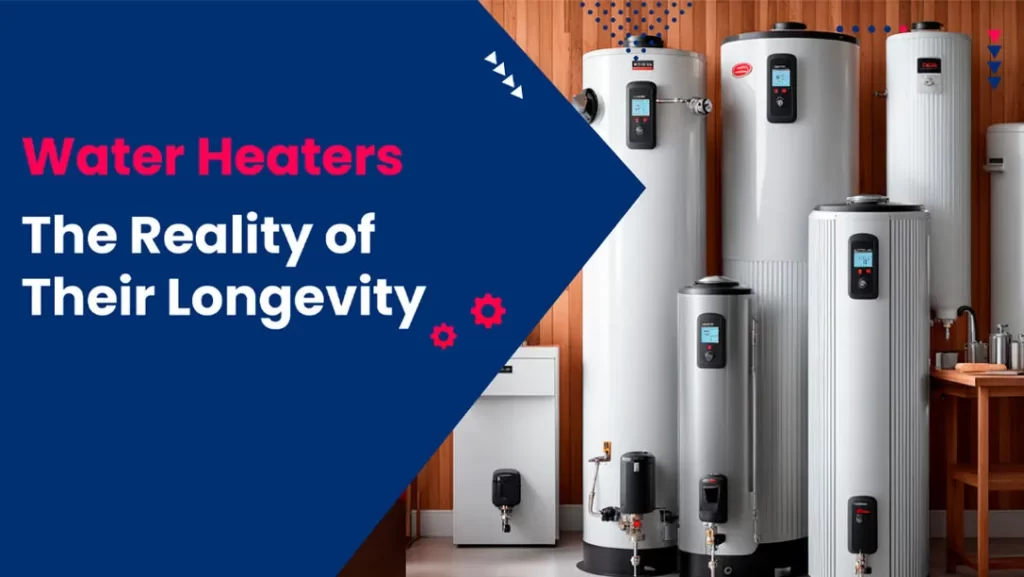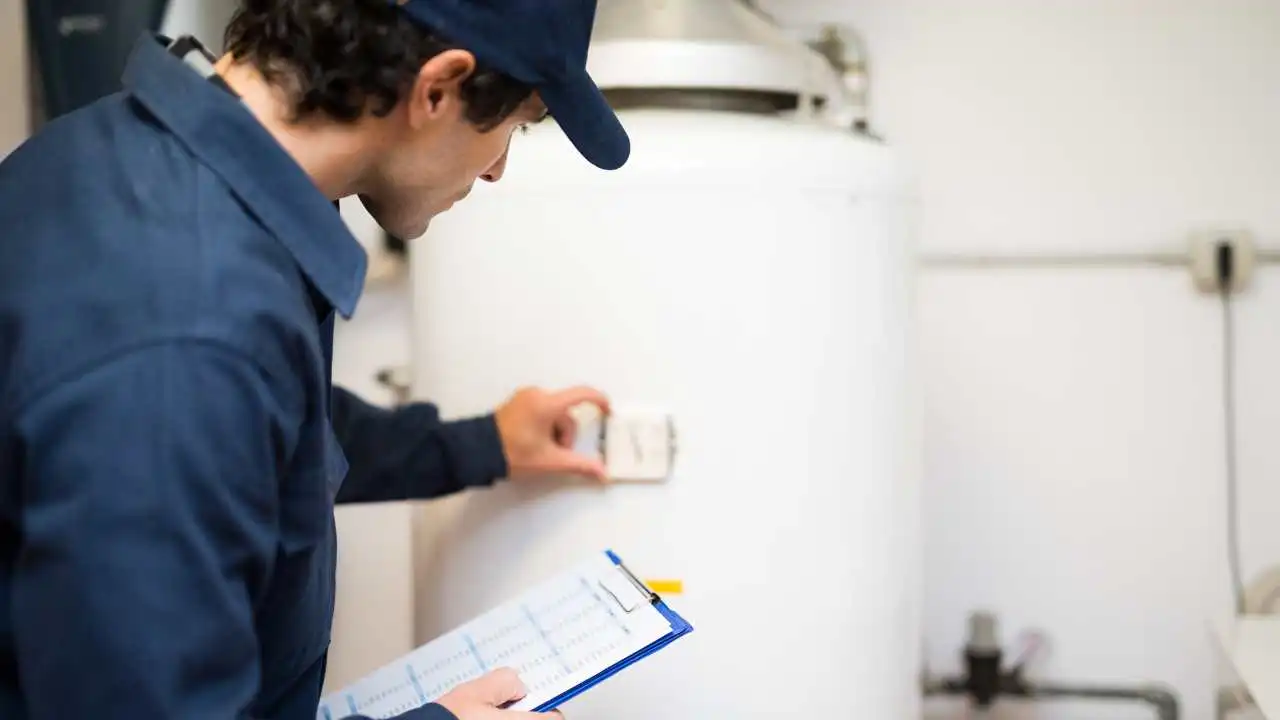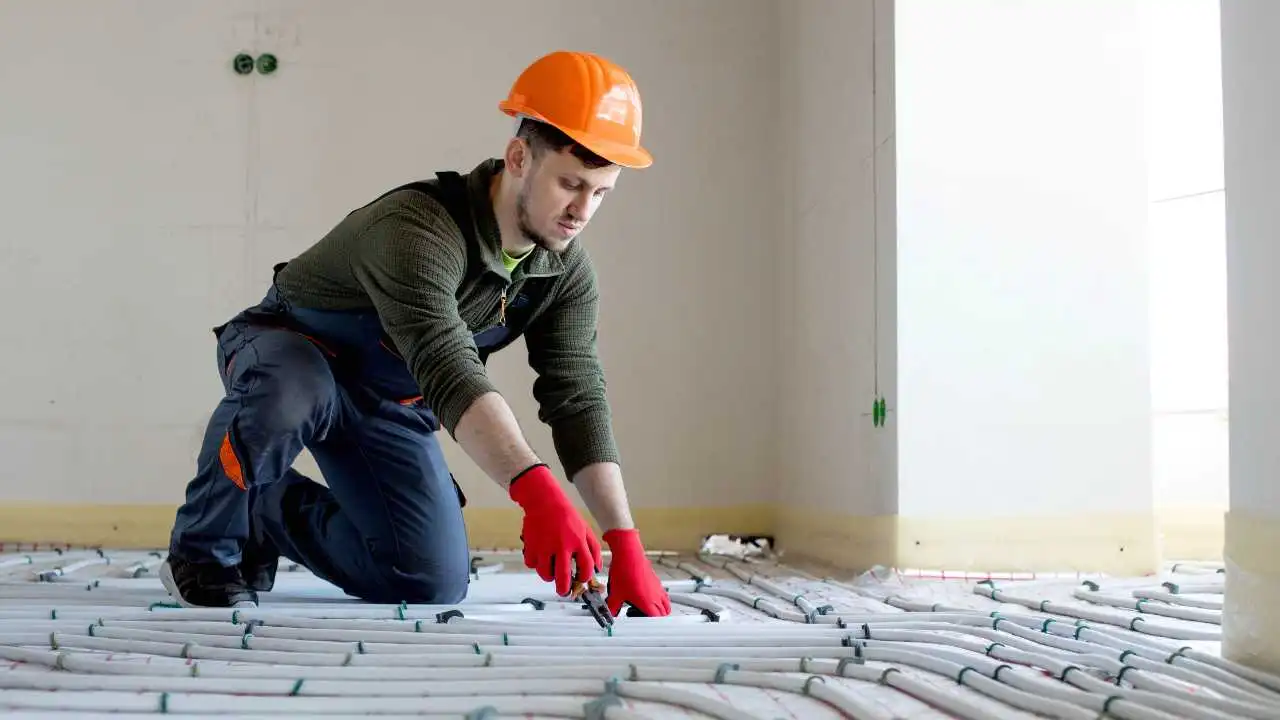Water Heaters: The Reality of Their Longevity

Whenever we think of the integral components of a modern home, a water heater is high on the list. The mere mention of cold showers is enough to cringe at, highlighting the importance of this piece of machinery tucked away discreetly in our homes. In this blog, we will discuss the factors impacting the lifespan of water heaters and share some maintenance tips for water heaters.
Longevity of Water Heaters
Traditional tank-style water heaters tend to have a lifespan of 8-12 years, while tankless models can last up to 20 years, provided they receive proper care. Factors such as water quality, since Water quality impacts heaters, maintenance frequency, and the heater’s design all significantly impact the Water Heater Lifespan.
Maintenance Tips for Water Heaters
To extend the lifespan of your water heater, it’s pivotal to conduct regular maintenance of the unit.
Annual Maintenance Checklist for Water Heaters Repair:
• Inspect the pressure relief valve.
• Drain the tank at least once a year to remove any sediment buildup.
• Inspect for signs of corrosion or leaks.
• Check the temperature setting to ensure it’s no higher than 120°F to prevent overheating and improve efficiency.
Implementing these Maintenance Tips for Water Heaters can improve your unit’s efficiency while reducing the chances of unexpected breakdowns.
Signs of Aging in Water Heaters
Clued into what to look for can save homeowners from stress and potential water damage. Here are common Signs of Aging in Water Heaters:
- Strange noises or rumbling are often caused by sediment build-up over time. Regular flushing can prevent this issue.
- A Reduced hot water supply, such as hot water running out quickly or inconsistent temperatures, could indicate a failing heating element or sediment build-up.
- Water leaking around the water heater is a clear indicator that your water heater could be reaching its end of life.
Common Issues Affecting Water Heater Lifespan
Several Common Issues Affecting Water Heater Lifespan can shorten this essential appliance’s life if not addressed promptly:
- Sediment Build-up: Regular flushing of the heater helps rid it of sediment accumulation, improving its life expectancy.
- Excessive Pressure: Due to high pressure, an overworked system is more prone to fail early. Installing a pressure-reducing valve can handle this issue.
- Corrosion: An anode rod’s job is to corrode instead of the tank. Ensure this rod is replaced once it’s corroded to prevent the corrosion of the tank.
Choosing the Right Water Heater for Longevity
When it comes to Choosing the Right Water Heater for Longevity, one needs to consider longevity, cost-effectiveness, efficiency, and the size of the home.
- Tankless Water Heaters: Known for their longevity and efficiency, this can be a great choice for smaller homes with less simultaneous hot water needs.
- Solar Water Heaters: While these have a considerable upfront cost, they can often outlive traditional models while providing significant savings on energy bills.
- Conventional Storage-tank Water Heaters: These are great for larger homes due to their extensive hot water supply, even though they generally have a shorter lifespan.
The Longevity of Water Heaters cannot be summed up merely to the equipment you select. Proper installation, regular maintenance, and understanding of Common Issues Affecting Water Heater Lifespan are crucial. Awareness of Signs of Aging in Water Heaters allows you to handle potential problems before they escalate. All these together will ensure you can enjoy warm showers for many years.


The Benefits of Hydronic Heating Systems
Hydronic heating systems, also known as radiant heating systems, are gaining popularity as efficient, comfortable,…

20 Tips for Optimizing Your Heating System for Winter: Efficient and Eco-Friendly Strategies
As the cold temperatures of winter blow across the landscape, it's impossible to ignore that…



 ICONIER Digital Agency
ICONIER Digital Agency